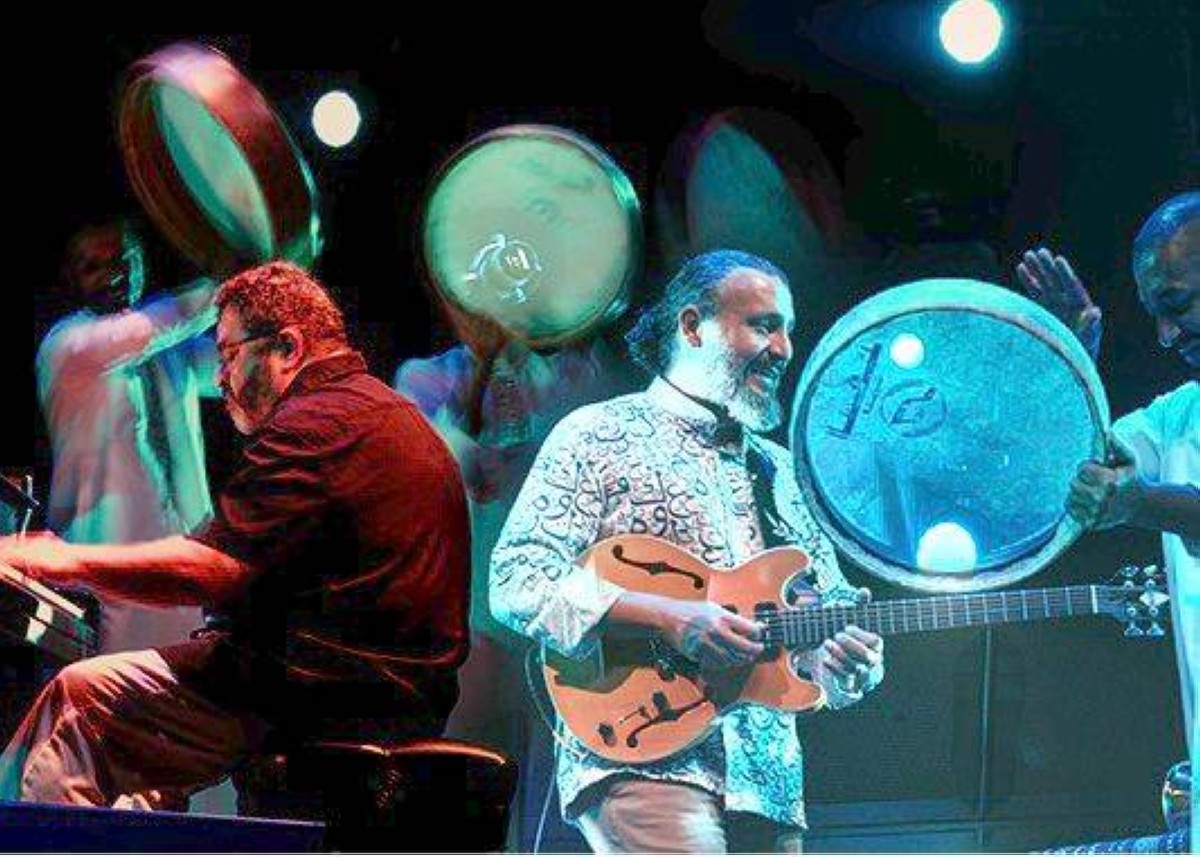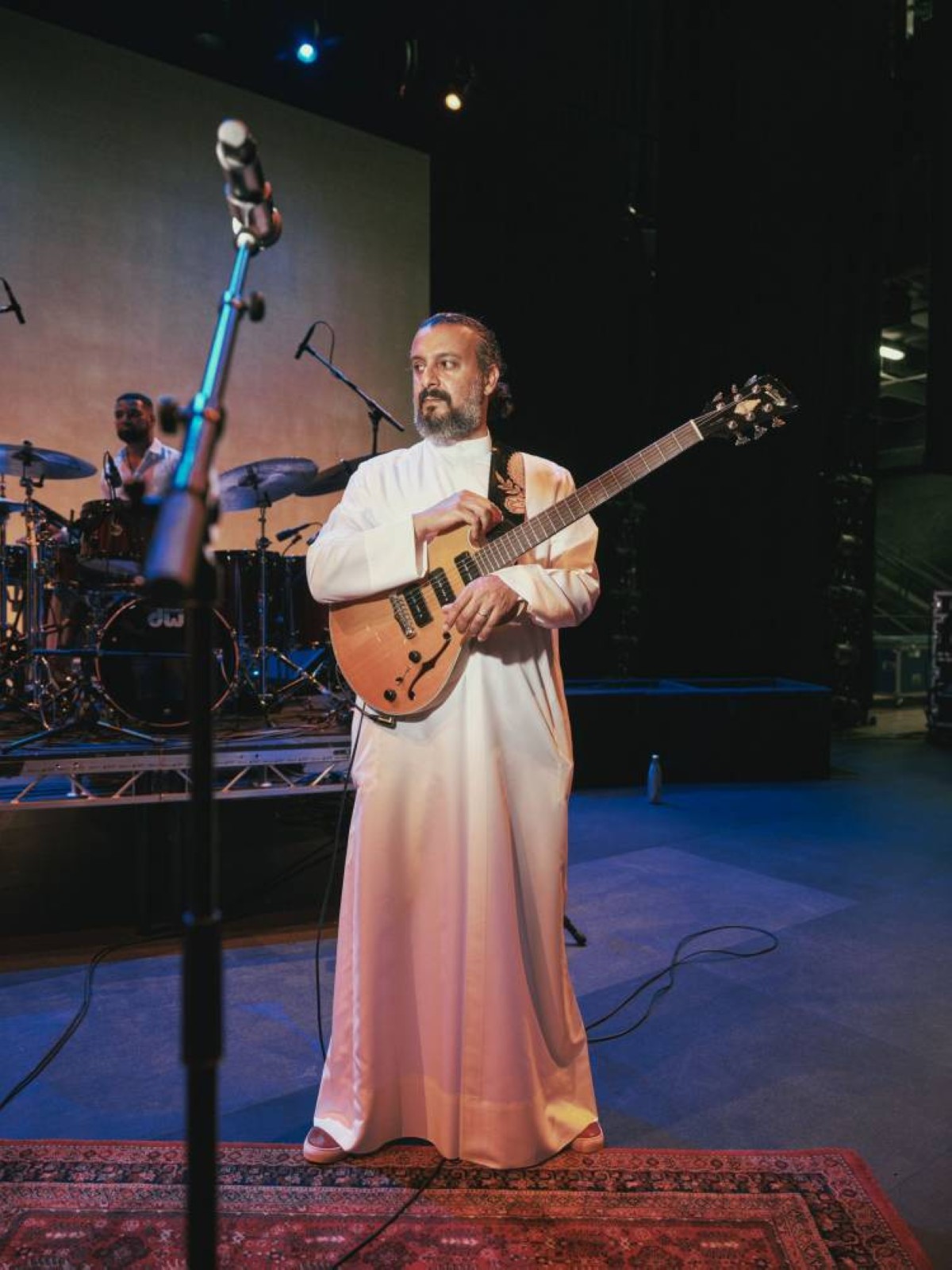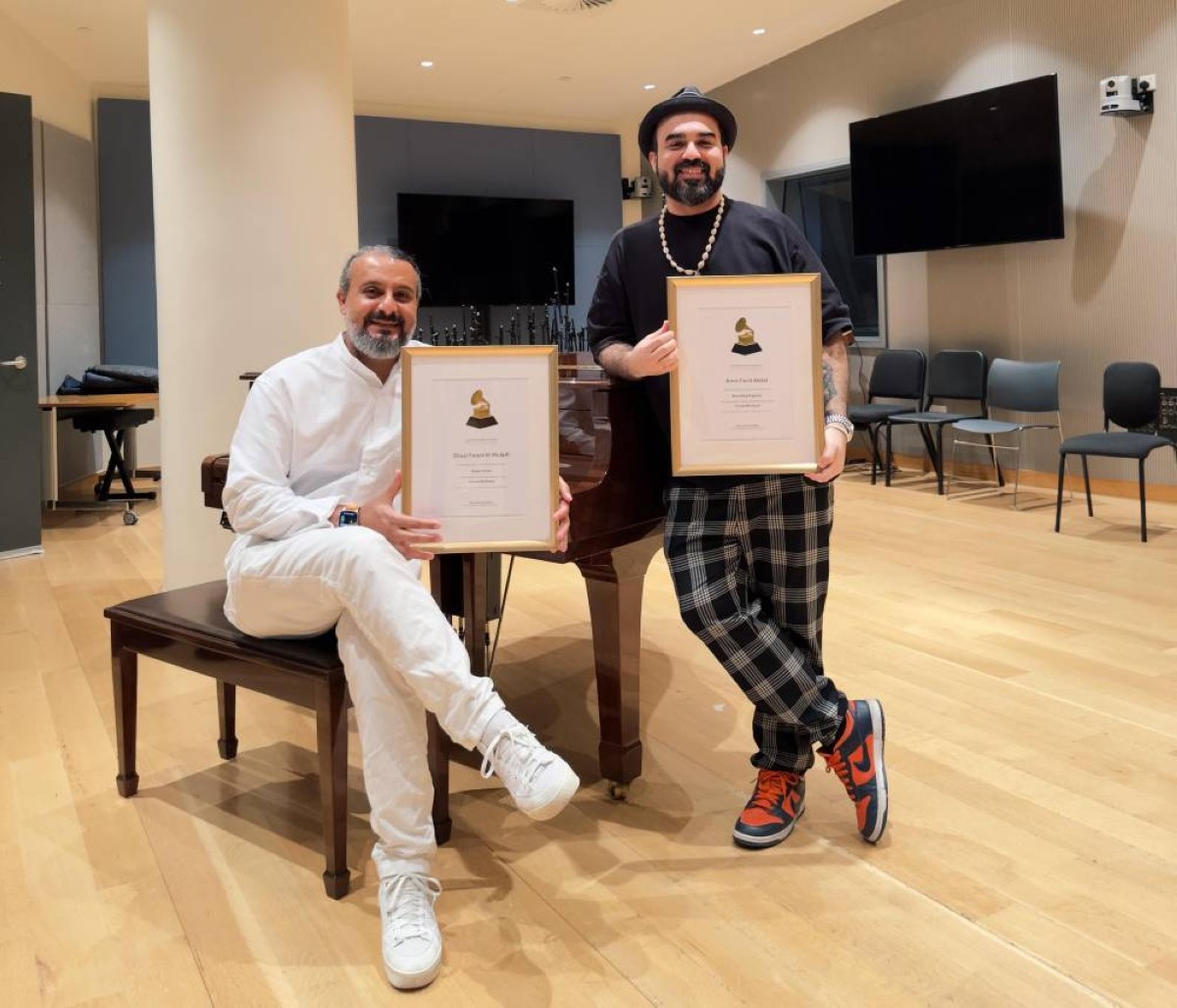Bridging traditional Bahri music and global jazz, Ghazi Al-Mulaifi and Amin Abdal nominated in Best Latin Jazz Album category
Ghazi Al-Mulaifi and Amin Abdal have made history as the first musicians from Kuwait and the Arabian Gulf to be nominated for a Grammy in the Best Latin Jazz Album category. Kuwait Times spoke with the musician Mulaifi to learn more.
Kuwait Times: How did the ensemble react when you learned that "Ana Mashoof” was nominated for a Grammy?
Ghazi Al-Mulaifi: When we found out, we felt grateful for the recognition of our hard work. It was an incredible moment, especially because we realized we were the first Khaleeji musicians and recording engineers ever nominated. The Grammy doesn't have much reach in our region, so it was both surprising and exciting.
KT: What inspired you to blend traditional Kuwaiti sea music with global jazz, and how has your academic background influenced this fusion?
Mulaifi: My academic work focuses on Kuwait’s maritime music and its connection to pearl diving and maritime trade along the Swahili Coast, India and beyond. During my doctoral studies, I interviewed the late Sulaiman Mayouf Mejally, who is also featured on this album. In my studio, while surrounded by guitars and pianos, he suggested that I merge my jazz background with Bahri music. That suggestion sparked what later became Boom.Diwan. Both Bahri music and jazz are cosmopolitan genres, shaped by trade and cultural exchange, so Boom.Diwan is a natural extension of Bahri music.
KT: How do you balance your roles as a musician, professor and cultural ambassador? What challenges do you face in preserving and innovatively presenting Kuwaiti music to the world?
Mulaifi: I don’t feel the need to balance these roles, as they all inform each other. To understand Bahri music, I must practice it. To give it meaning, I conduct ethnographic interviews with its caretakers. To ensure its survival, I teach it, as I do with the Modern Khaleeji Ensemble at NYU Abu Dhabi, where I am a professor of Arab music.




KT: What does this nomination mean for Kuwaiti music on the global stage, and how do you envision it impacting the music scene in Kuwait?
Mulaifi: Our goal is to inspire future generations to engage with Kuwaiti musical traditions and help them evolve. The main Bahri diwaniyas in Kuwait have limited opportunities to share their traditions outside of heritage events. Global musicians we've collaborated with are always amazed by our rich musical heritage and wonder why they haven’t heard of it before. This nomination gives us the platform to showcase our music internationally.
We’ve invested a lot of energy into promoting Boom.Diwan without backing from Kuwaiti cultural institutions. Our biggest advocate has been Bill Bragin, the Artistic Executive Director of The Arts Center at NYU Abu Dhabi. We've also relied on the support of musicians like eight-time Grammy Award-winning artist Arturo O’Farrill.
KT: Are there any new projects or collaborations in the works?
Mulaifi: The Grammy nomination has solidified our position on the global stage. We hope to collaborate with more world-class artists and continue pushing boundaries. In October, we’ll perform at WOMEX (the world music expo), where we’ll be the first Khaleeji musicians ever represented.
KT: How do you manage to preserve Kuwaiti culture while blending traditional music with contemporary global genres?
Mulaifi: Everything starts in the diwaniya. My greatest mentor, the late Sulaiman Mayouf Mejally, opened his diwaniya to me and taught me Bahri music. He allowed me to explore our music's place in a global context. He performed with me many times, both in Kuwait and internationally. His trust in Boom.Diwan ensured our work was firmly grounded in Bahri musical traditions.
KT: What was the most challenging aspect of recording "Ana Mashoof”?
Mulaifi: The biggest challenge was coordinating recordings across different parts of the world. This required a lot of trust and coordination. None of this would have been possible without the dedication of my dear friend, Amin Abdal. Amin has been with Boom.Diwan since our first concert in 2017. He set up a mobile recording studio with over eight microphones to capture live performances in a traditional diwaniya in Kuwait. He also led the recording sessions that connected our live music with jazz artists recording from New York.
KT: Are you considering any new opportunities or changes in direction?
Mulaifi: We don’t foresee any major changes at the moment. We’re just beginning our journey. This year, we’ll be releasing a new album called "Live at the Khaleej” by Ghazi & Boom.Diwan, featuring Arturo O’Farrill. We recorded it at The Arts Center of NYU Abu Dhabi with support from the Afro-Latin Jazz Alliance Belongó. We also have upcoming performances in Manchester, the US and possibly Scotland next year.
KT: What message do you hope to convey through your music, especially to listeners unfamiliar with Kuwaiti music?
Mulaifi: Music has always connected people. It’s essential to show how Bahri music can revitalize our culture and society. Instead of seeing it as an outdated art form, we embrace it and integrate it into modern life. Our aim is to evolve as a community while preserving and sharing our rich musical heritage with the world.
KT: What role do you see Boom.Diwan playing in the global music scene, especially after the Grammy recognition?
Mulaifi: It’s amazing to see Boom.Diwan reaching new audiences in Kuwait, the UAE, Saudi Arabia and New York. After our shows, people who have never heard Kuwaiti music often express how deeply it resonated with them. Our music connects with people on a spiritual and emotional level. One audience member in New York told me, "I felt that. It touched dormant parts of me, and you brought them to life."

